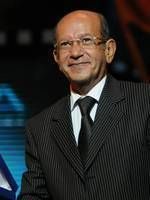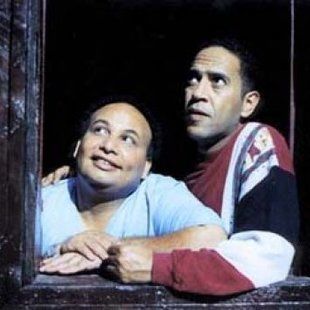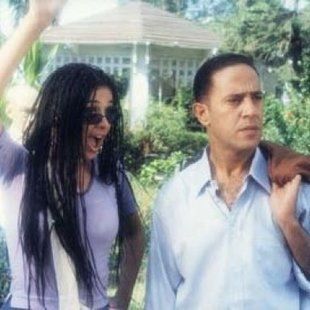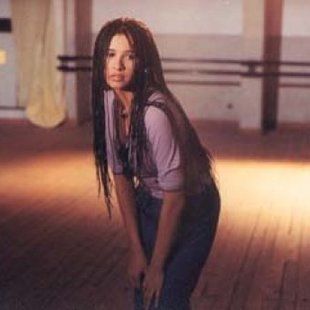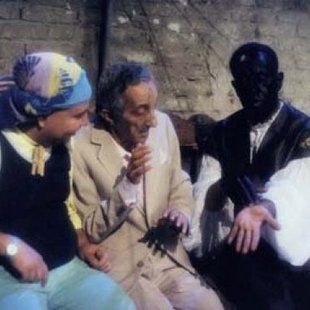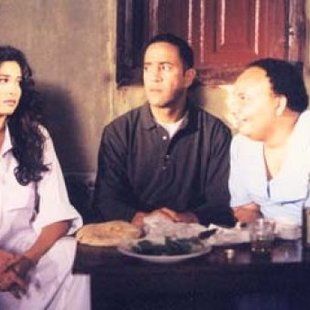Rasha Gareaa (2001) A Generous Gesture
Salmawy and Mima are two aspiring actors who are trying to join the High Institute of Theatrical Arts. As their dreams are derailed by the difficult admission exams, they decide to do whatever it...Read more takes to fulfill their dream.
- Director:
- Saeed Hamed (Director)
- Ahmed Nader Galal (Assistant Director)
- (more)
- Writer:
- Maher Awwad (Writer)
- Cast:
- Ashraf Abdel Baky
- Yasmin Abdulaziz
- Ahmad Mounir
- Mahmoud Abdelghaffar
- Lotfy Labib
- Ali Hassanein
- (more)
- VOD Guide:
Watch Online (Sponsored By Yango Play)
-
-
- Rocky El Ghalaba
- 2025 - Movie
-
-
- Al Shater
- 2025 - Movie
-
-
- Ward w Shokolata
- 2025 - Series
-
-
- One Last Sin
- 2025 - Series
-
-
- 2 Qahwa
- 2025 - Series
-
-
- Siko Siko
- 2025 - Movie
Details
Salmawy and Mima are two aspiring actors who are trying to join the High Institute of Theatrical Arts. As their dreams are derailed by the difficult admission exams, they decide to...Read more do whatever it takes to fulfill their dream.
MorePlots:
Depicting the struggle of two young actors trying to launch their career, Rashah Gariaa is a self-mocking parody studded with numerous allusions to Egyptian film classics and the...Read more contemporary filmmaking scene. The protagonists, Salmaawy (Ashraf Abdul Baaky) and Mima (Yasmine Abdul ’Aeeiz), stumble through a series of rites familiar to young talents trying to make a name for themselves. At one point, the absurdist Arts Academy committee asks Mima to show how she would drown in foot-deep waters, thus revealing her legs for each of the four-committee members to drool over. The two struggling artists then decide to try their luck in commercial theatre and take part in a play that includes lots of improvisation. A number of well-timed plot twists take the pair from theatre, to police station and back to the theatre, where they manage to win laughs and the approval of an amused Arab in the audience. The star of this play, played by veteran actress Haala Faakher, who has starred in many a humiliating performances of this ilk herself, is brushed aside by the unlikely patron. The brief spell of good fortune ends when an infuriated fundamentalist curses the play's antics. That night, a street gang sets the theatre afire and Salmaawy and Mima are hauled back to the police once again. The story picks up with the introduction of the character Shawkat Halaby, an internationally renowned director with a penchant for presenting Shakespearean plays. Halaby is conducting auditions for a grandiose stage version of “Othello”, and he selects Salmaawy, Mima and her ex-boyfriend Subaih from hundreds of actors. Salmaawy and Subaih are made to dual for the lead role and, metaphorically, for Mima's affection. The film skillfully weaves allusions to some of the most-classic scenes of Egyptian cinema. Entering a film studio as extras, the characters are classified by assistant director Ali Idriss -- playing himself, but holding a whip and affecting an ill temper, as either British soldiers or nationalists according to skull size. Salmaawy and Mima play the parts of demonstrators during the 1919 Revolution, -- an echo of a classic scene in Hassan El-Imam's version of Nagueeb Mahfouz's “Bein al-Kasrein i.e. Palace walk (1964)”. However, losing the paper from which he was reading his protests and carried by the masses from the studio into the streets, Salmaawy starts railing against poverty and hunger and sings the famous line from Folk superstar Sha’baan Abdul Reheem about quitting smoking and working out. Again, the unlucky couple is arrested. Upon release, they are granted a reward of LE10 and they stop at a supermarket to spend it -- a reference to a scene from Anwar Wagdy's “Yasmine (1950)”. Moving still inside the classical cinema maze, Salmaawy and Mima mistakenly enter the villa of actor Samy al-‘Adl, where Sha’baan Abdul Reheem is rehearsing a version of “’Aashek al-rowh" i.e. Soul lover” with a full orchestra and chorus. This ultimate tongue-in-cheek sequence brilliantly parodies the over-the-top scene of Wagdy's classic “Ghazal al-banaat i.e. Wooing the girls (1949)”, where the legendary Muhammad Abdul Wahhaab sings his famous song thus entitled. The parody eventually gives way to a mockery of contemporary music as Sha’baan launches into his rap-like lyrics and the protagonists tour the streets in an open car. Salmaawy and Mima, implicated in the murder of the director Halaby, are again forced to run from the law. The sequence in which Hassan al-Asmar sings a modern “Mawwaal” (ballad) easily recalls the classic Hossaameddeen Moustafa film Adham al-Sharkaawy (1964)” where Abdul Haleem Haafez sings to the police chasing after the Robin Hood-like hero of the film's title. The police officer who haunts the film in search of Salmaawy and Mima himself recalls a similar character in Ra’fat al-Mihi's “Samak laban tamr-hendy i.e. Hodge Podge (1988)” and serves as a reminder of the chaotic application of emergency law, a recurrent motif in the film and a common sub-plot of modern Egyptian cinema. The conclusion speeds to a self-conscious Hollywood-style happy-ending. A villainously grinning director Haamed turns up posing as an unknown suspect while a newspaper vendor calls “read about the murder!” Ultimately, the true culprit is revealed and the fugitives vindicated. The finale has Salmaawy and Mima cast as “Othello” and “Desdemona” and cheered by a wide audience, conveniently peopled with the likes of local cinema distribution magnate Muhammad Hassan Ramzy and producer Muhammad al-‘Adl, two of the main players in the new star-making game, as well as number one funny man Muhammad Heneidy, along with recently-risen comedy stars Haany Ramzy and Ahmad al-Sakka.
More- Category:
- Movie
- Other Platforms:
- TOD Comedy Movies
- Shahid Comedy Movies
- Jawwy TV Comedy Movies
- OSN+ Comedy Movies
- Sling TV Comedy Movies
- Starzplay Comedy Movies
- Yango Play Comedy Movies
- Awaan Comedy Movies
- Viu Comedy Movies
- Wide Khaliji Comedy Movies
- Netflix Comedy Movies
- YouTube Comedy Movies
- Censorship:
- مصري
- All Ages
- تقييمنا
- Family (all ages)
- Language:
- Arabic
- Country:
- Egypt
- Is this a coloured title?:
- Yes












